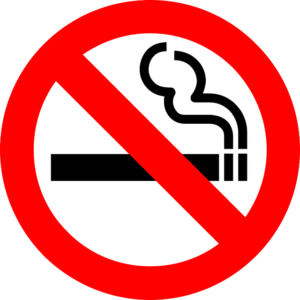Bad breath, also known as halitosis, can be a common yet embarrassing issue that affects many people at some point in their lives. It can stem from various factors, including poor oral hygiene, dietary choices, underlying health conditions, or lifestyle habits. In this blog, we’ll delve into the causes of bad or changed breath, explore preventive measures, and discuss effective remedies to maintain fresh breath and oral health.
1. Common Causes of Bad Breath
a. Poor Oral Hygiene:
Inadequate brushing and flossing can lead to the buildup of food particles, plaque, and bacteria in the mouth, contributing to bad breath.
Neglecting to clean the tongue, gums, and teeth surfaces can also harbour odour-causing bacteria.
b. Dietary Factors:
Foods with strong odours, such as garlic, onions, spices, and certain beverages like coffee and alcohol, can cause temporary bad breath.
Sugary foods and beverages can promote bacterial growth and contribute to bad breath over time.
c. Dry Mouth (Xerostomia):
Reduced saliva production can result in a dry mouth, leading to a buildup of odour-causing bacteria and a stale breath odour.
Medications, certain medical conditions, or mouth-breathing habits can contribute to dry mouth.
d. Smoking and Tobacco Use:
Tobacco products contain chemicals that can cause foul breath odour and increase the risk of gum disease, which contributes to bad breath.
e. Dental Issues:
Gum disease (gingivitis or periodontitis), cavities, oral infections, and dental appliances (like braces or dentures) that aren’t cleaned properly can lead to bad breath.
f. Medical Conditions:
Certain medical conditions, such as sinus infections, respiratory infections, acid reflux (GERD), diabetes, liver or kidney disease, and metabolic disorders, can cause bad breath.
Persistent bad breath that doesn’t improve with oral hygiene may warrant evaluation by a healthcare professional to rule out underlying health issues.
2. Prevention and Healthy Habits
a. Maintain Good Oral Hygiene:
Don’t forget to brush your teeth at least twice a day and floss daily to keep plaque and food debris at bay!
Don’t forget to clean your tongue using a tongue scraper or the back of your toothbrush to effectively remove bacteria and debris.
b. Stay Hydrated:
Drink plenty of water throughout the day to keep your mouth moist and flush out food particles and bacteria.
Chewing sugar-free gum or sucking on sugar-free mints can stimulate saliva production and reduce dry mouth.
c. Watch Your Diet:
Limit foods and beverages with strong odours, and rinse your mouth or brush your teeth after consuming them.
Choose fresh fruits and vegetables, dairy products, and foods high in fibre to promote oral health.
d. Quit Smoking and Tobacco Use:
Quitting smoking and tobacco products can significantly improve breath odour and overall oral health.
Make sure to seek support from healthcare professionals or smoking cessation programs if you need help.
e. Regular Dental Checkups:
Schedule routine dental exams and cleanings to detect and treat dental issues early, preventing bad breath and gum disease.
3. Effective Remedies for Bad Breath:
a. Mouthwash:
Use an alcohol-free mouthwash containing antibacterial ingredients to help kill odour-causing bacteria and freshen your breath.
Rinse your mouth with mouthwash after brushing and flossing, or as directed by your dentist.
b. Herbal Remedies:
Chew on fresh herbs like mint, parsley, or cilantro to naturally freshen breath and stimulate saliva production.
Brew herbal teas with ingredients like cinnamon, cloves, or fennel seeds, known for their breath-freshening properties.
c. Baking Soda Rinse:
Mix a teaspoon of baking soda in a glass of warm water and use it as a mouth rinse to neutralize acids and bacteria in the mouth.
Use caution not to swallow baking soda, and rinse your mouth thoroughly afterwards.
d. Oil Pulling:
Swish a tablespoon of coconut oil or sesame oil in your mouth for 10-15 minutes, then spit it out to remove bacteria and toxins.
Oil pulling can help improve oral hygiene and reduce bad breath over time.
e. Hydration and Fresh Foods:
Drink green tea, which contains polyphenols that can help fight bacteria and reduce mouth odour.
Include crunchy fruits and vegetables like apples, carrots, and celery in your diet, as they can help clean teeth and freshen breath.
4. When to Seek Professional Help
If bad breath continues despite practicing good oral hygiene and trying home remedies. If you experience other symptoms like tooth pain, bleeding gums, dry mouth, or signs of infection in the mouth. If you have underlying medical conditions that may contribute to bad breath, such as diabetes, acid reflux, or respiratory issues.
Bad breath can be a temporary or chronic issue influenced by various factors, including oral hygiene, diet, lifestyle habits, and underlying health conditions. By maintaining good oral hygiene practices, making healthy dietary choices, staying hydrated, and seeking professional dental care when needed, you can effectively manage and prevent bad breath. Incorporate natural remedies and healthy habits into your daily routine to enjoy fresh breath and optimal oral health.











